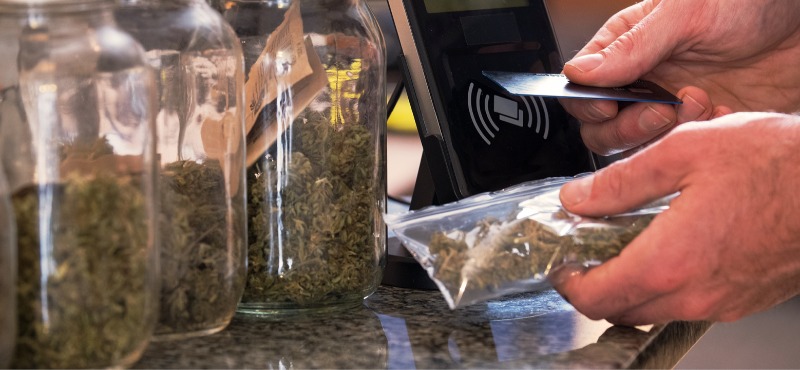Marijuana laws in the Midwest are rapidly changing. Several states, including Michigan and Illinois, have recently legalized recreational weed. This means that the sale and purchase of marijuana in those states is currently, or will be soon, legal for medical and recreational purposes.
Indiana is one state that has so far resisted legalizing marijuana. However, some state legislators will seek to change that in 2020. Purposes for legalizing marijuana include generating money for the state through taxes and alleviating stress on prisons by not convicting individuals for misdemeanor marijuana drug charges.
The New Laws
Michigan and Illinois, both states that border Indiana, have passed recent laws that make medical and recreational marijuana legal. In Michigan, recreational marijuana became legal on December 1, 2019. State citizens over the age of 21 are allowed to purchase up to 2.5 ounces of weed from licensed retailers. Currently, only a few retailers are operating because many local municipalities opted out of allowing the legal sale of marijuana in their jurisdictions.
Illinois was the eleventh state to legalize recreational marijuana. On January 1, 2020, any adult state-citizen over 21 years of age will be allowed to legally purchase or possess up to 30 grams of marijuana plant material, 500 mg or less of THC, or 5 grams of cannabis concentrate. Non-state residents will be allowed to purchase half of those amounts.
In Indiana, the sale, purchase, and possession of marijuana are still illegal for both medical and recreational uses. Only CBD oil is legal for sale and purchase in the state. However, on the local level, there have been some advances. In September 2019, Acting Indianapolis Prosecutor Ryan Mears decriminalized some marijuana crimes by announcing that simple possession of less than one ounce of marijuana would no longer be prosecuted.
What does this mean for past criminals?
While states are passing laws to legalize marijuana, it is still not legal on the federal level. This means that citizens who live in a state that has legalized marijuana can still be punished or fined at the federal level. It also means that any past convictions at the federal level will not be overturned if the state has changed or intends to alter its laws.
In Michigan, there are current efforts to create a law that will make it easy to expunge the records of over 250,000 individuals who have been convicted of marijuana-related crimes in the past. As of December 2019, the bill had passed the state House and was waiting on a vote in the state senate. If the state Senate approves, the bill will then be given to the Governor to sign to make it into a new law.
The bill that legalized marijuana in Illinois also provided for the expunging of criminal records for over 700,000 state citizens who had past marijuana convictions. Any individual with a criminal record for marijuana convictions involving 30 grams or less will now receive automatic clemency.
In Indiana, marijuana is still illegal and those with marijuana convictions in the state will still have a criminal record. However, following other state trends, it can be assumed that some of those convictions would be expunged or forgiven if the state legalized recreational marijuana.
What does this mean for the future?
States make a lot of money through taxes when they legalized medical and recreational weed. New businesses that sell marijuana also tend to make a large profit. Because of this, the purpose of expunging criminal records in states that have legalized marijuana is to balance fairness. Legislators argue that it isn’t fair to allow states and businesses to make money off of an action that resulted in previous convictions for over hundreds of thousands of state citizens.
Currently, an Indiana citizen can cross state lines and buy and use marijuana in both Michigan and Illinois. They will not be fined or punished for doing so in those states. However, if they purchase marijuana legally in one state and cross back into Indiana with the drug, they can and will still face drug charges. It is also important to note that crossing a state border with a drug is a federal crime and the person would be prosecuted on the federal level.
As mentioned before, marijuana is still illegal at the federal level. This means that federal employees and military members still cannot purchase or use marijuana in states where it is legal. It also means that the federal government can prosecute marijuana crimes in states where it has been legalized. A recent bill was approved by a House Committee that could legalize marijuana on the federal level. However, it is not currently expected to pass in the Senate.
----------
Rock Lee is a criminal defense lawyer in Indianapolis at Suhre & Associates, LLC. They handle all criminal defense matters including DUI, drug crimes, domestic violence charges, theft crimes, sex crimes, and more.
































